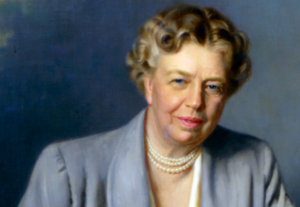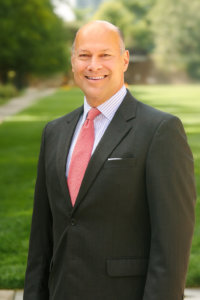Keys for a More Fulfilling Life – Part 2
April 15, 2021
To Inspire:

Continuing from last week’s Wealth Notes, we share excerpts from last five of Eleanor Roosevelt’s Eleven Keys For a More Successful Life, from her book, You Learn By Living (if you missed the first six keys, you can read them here). Enjoy!
- The Right to be an Individual – We are facing a great danger today – the loss of our individuality. It is besieged on all sides by pressure to conform: to a standardized way of living…to rubber stamp thinking. But the worst threat comes from within – from a person’s apathy, their willingness to surrender to pressure, to do it the easy way, to give up one’s individuality. It is your life – but only if you make it so. When you adopt the standards of someone else, you surrender your own integrity…. This is a dangerous conformity because it is the easy way and we do so because we think we can get farther in our job or profession but not fighting for what we believe in, or because we will be more popular if we surrender our own convictions…
- How to Get the Best out of People – Nobody really does anything alone. For almost every achievement in life, it is essential to deal with other people. Even great leaders, like Lincoln, Gandhi and Churchill were able to bring about desired results by having followers. So along with the need for individual development, there is also an equally pressing need to work co-operatively. This, of course, involves learning about people and finding out how to draw the best from your association with them. If you approach each person you meet in a spirit of adventure you will find that you become increasingly interested in them and that they become a source of inexhaustible surprise because of the unexpected qualities and interests which you will unearth. If such a search is to be successful, however you will need two qualities which you can develop by practice. One is the ability to be a good listener and the other is the imaginative ability to put yourself in the other person’s place; to understand as far as you can the background they came from and the customs and beliefs which have shaped their thinking.
- Facing Responsibility – We all create the person we become by the choices we make as we go through life. In a very real sense, by the time we are adults, we are the sum total of the choices we have made. This is not pleasant hearing for the person who wishes to place the responsibility for what he has become on someone else or on that blanket alibi or circumstance beyond his or her control. To such a person, the circumstances always seem beyond his control. But I believe most firmly that in the long run every single one of us must be responsible for himself and for his actions. This kind of self-responsibility goes beyond oneself – ultimately we also are responsible for the welfare of our community and for the world we live in.
- How Everyone Can Take Part in Politics – Politics is the participation of the citizen in his government. The kind of government one has depends entirely on the quality of that participation. Therefore every single one of us must learn, as early as possible, to understand and accept our duties as a citizen. The minimum duty is to cast vote our in elections and to cast them intelligently. A simple and obvious way to extend beyond that duty is to pay attention to local politics. In your own community, where the issues are familiar to you and you are able to judge for yourself what should be done and how it should be accomplished, there is a great place to start. And as you progress from interest in local questions to national problems and international situations, each step will deepen your interest and increase your knowledge. And you will discover to your astonishment that within a few years you will have made yourself a discriminating citizen, able to know what you have a right to expect from a candidate, at whatever level.
- Learning to be a Public Servant – Few people have ever deliberately prepared themselves to become public servants. They have entered politics more or less accidentally. But there are certain fundamental things that any person entering public life must face. First, one must be ready to accept the possibility that they will be turned out of office and so must have a plan for life after office. Second, they must be sure that their family is willing to accept this mode of life, which is unlike any other. Third they must have a genuine love of people and a deep desire to achieve something which can be accomplished only through public service. And fourth he must have an overall interest in the big questions that touch his community and an understanding of how these questions in turn are affected by the broader national and international questions, and have the ability to bring the whole picture back to the people of his community, so enabling them to become a part of the world community.
We might find some of Eleanor’s thoughts overly influenced by the predominant thinking of her day. Nevertheless, these eleven keys offer much to us today. Grasp one or two and place them more deeply into your thinking – and determine how they might help you live your life with greater purpose and greater connection with others. In doing so, you’ll make a greater contribution to the world around you and find greater joy!

Written by Matt Palmer, Co-founder and Chairman